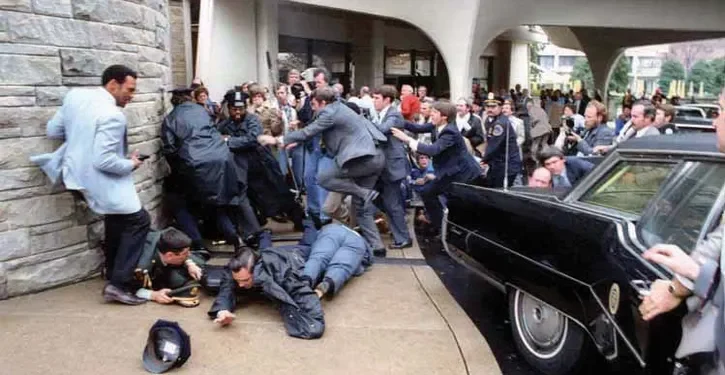On March 30, 1981, the United States was rocked by an assassination attempt on President Ronald Reagan. The incident, which occurred outside the Washington Hilton Hotel, left Reagan wounded and four others injured. The assassination attempt not only shook the nation but also marked a significant turning point in Reagan’s presidency.
Reagan had been in office for only 69 days when John Hinckley Jr. fired six shots at him as he left the hotel after delivering a speech. One of the bullets punctured Reagan’s lung, causing serious injuries. The quick response of the Secret Service agents and medical personnel saved Reagan’s life, but the event had a profound impact on his presidency.
Despite the chaos and uncertainty following the attempt on his life, Reagan displayed remarkable resilience and strength. His calm demeanor and reassuring communication with the public helped stabilize the nation during a moment of crisis. Reagan’s ability to maintain composure under pressure bolstered his image as a strong and capable leader.
Moreover, the assassination attempt strengthened Reagan’s determination to pursue his political agenda. As he recovered from his injuries, Reagan remained steadfast in his commitment to implement his policies aimed at revitalizing the economy and strengthening national defense. The resilience he demonstrated in the face of adversity earned him widespread admiration and support from the American people.
The incident also highlighted the importance of effective leadership and security measures in safeguarding the nation’s leaders. In response to the assassination attempt, the Secret Service implemented stricter security protocols to protect the president and other high-ranking officials. The incident served as a wake-up call for enhancing security measures and preparedness against potential threats.
Furthermore, Reagan’s handling of the aftermath of the assassination attempt contributed to his political legacy. His ability to rally the nation together in the aftermath of a traumatic event showcased his leadership skills and charisma. Reagan’s popularity soared in the months following the assassination attempt, solidifying his position as one of the most beloved presidents in American history.
In hindsight, the assassination attempt on Reagan served as a defining moment in his presidency. It tested his leadership abilities and resilience, ultimately strengthening his resolve to enact his vision for the nation. Reagan’s handling of the crisis earned him admiration and respect both at home and abroad, leaving a lasting impact on his presidency and the course of American history.
newshub



Recent Comments